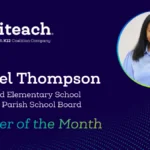How to Become a Teacher in Florida
If you’ve ever considered a career in education, Florida might just be the place for you. The Sunshine State is facing the worst teacher shortage it has ever seen, with a whopping 5,294 teaching vacancies reported in January 2023.
Given the need for educators throughout the state, there’s no better time for you to start your teaching journey. Like many states, the pathway to teaching in Florida requires specific steps and processes.
You will need to acquire your teacher certification, which involves:
- Obtaining a bachelor’s degree
- Completing a state-approved teacher education program
- Passing relevant exams
- Obtaining a temporary license
- Qualifying for a professional license
In this article, we’ll break down what’s required to become a certified educator in Florida, from initial prerequisites to the acquisition of your teaching license. Let’s dive in and unravel the steps to starting your teaching career in the Sunshine State.
Get Your Florida Teacher Certification
Becoming a certified teacher in Florida involves meeting educational prerequisites, completing a teacher certification program, passing required exams, and submitting an application. Here’s how you can achieve each of these steps:
1. Meet Educational Background Requirements
The first step in your journey to becoming a Florida teacher is earning a bachelor’s degree from an accredited college or university. This is a crucial requirement to be eligible for certification and begin your teaching adventure.
Not sure if your institution is approved? You can check the list at the Florida Department of Education Website.
2. Complete a Teacher Certification Program
Once you have your bachelor’s degree, the next stage involves applying to a state-approved teacher education program, also known as Educator Preparation Institute (EPIs). EPIs are designed specifically for people with a baccalaureate degree who desire to become educators.
If you’re an aspiring teacher with a bachelor’s degree in a non-education-related field, alternative programs like iTeach’s Online Teacher Certification program offer a more efficient pathway to teacher certification. These affordable solutions allow you to complete your coursework on your own schedule and start your teaching career sooner.
3. Pass Required Exams
Next up in your Florida teaching quest is studying for and passing the Florida Teacher Certification Examinations (FTCE). Success in these exams will bring you a step closer to your Florida Professional Certificate, marking a significant milestone in your career journey.
These exams are designed to measure your understanding of the subjects you’ll teach, as well as your pedagogical knowledge – your understanding of teaching methods and student learning strategies. Test information guides are available online on the FTCE website.
4. Submit Your Initial Application
Upon fulfilling the requirements above, you must submit an initial application package. This includes paying the necessary fees, sending transcripts, and providing any out-of-state or international certificates.
You’ll then receive an Official Statement of Eligibility (SOE), valid for three years, which serves as a formal declaration of your eligibility for a Temporary Certificate or a Professional Certificate.
It’s important to note that when issued a Florida Temporary Certificate, you must secure employment in either a public school or a nonpublic school that has a state-approved program for demonstration of professional education competence.
Be aware that all prospective teachers in Florida must undergo fingerprinting and screening. These fingerprints are submitted to the Florida Department of Law Enforcement (FDLE) and the Federal Bureau of Investigation (FBI) for criminal records checks.
Renewing Your Teaching License
If you want to know how to renew your teaching certificate in Florida, there are a number of conditions you need to meet:
- Complete six semester hours of college credit, with at least one hour focused on teaching students with disabilities.
- Finish all renewal requirements and submit your application during the final validity period of your certificate.
- Late renewal applications can be submitted before July 1 of the year following your certificate’s expiration, provided all requirements were met prior to expiration.
- Make sure you achieve a grade of “C” or higher in your renewal courses.
- If a subject is removed from your certificate, you must meet all current requirements to add it back.
Remember, it’s your responsibility to stay updated on renewal requirements, either via your school district or the Bureau of Educator Certification. Also, be aware that out-of-state certificates do not count toward renewal.
Teaching Careers in Florida
Teaching in Florida is an excellent career choice. With the current teacher shortage, there are many opportunities for new educators. Furthermore, starting salaries for teachers in Florida are just under $30,000, with the average salary being around $50,000 per year.
With the severe need for educators in the Sunshine State, coupled with iTeach’s alternative to the traditional accreditation process, there’s no better time to become a teacher in Florida.
Frequently Asked Questions
1. How do I get a teaching certification in Florida?
To get a teaching certification in Florida, you will need to meet educational background requirements, complete an educator preparation program, pass state-required tests, and undergo a background check.
You must first earn a bachelor’s degree from an accredited college or university. This is the foundational requirement for eligibility for certification. Then, you can enroll in an Educator Preparation Institute (EPI), which is state-approved and tailored to different educational and professional backgrounds. For those with non-education-related degrees or professionals considering career shifts, there are alternative pathways available such as the iteach alternative teacher certification program, which allows coursework completion at your convenience. Once you meet the academic requirements, passing the Florida Teacher Certification Examinations (FTCE) will be necessary to evaluate mastery of the subject matter along with your pedagogical knowledge.
After this, an initial application package must be submitted, including academic transcripts and proof of FTCE success. On approval, you will receive an Official Statement of Eligibility (SOE) for either a Temporary or Professional Certificate. Finally, all aspiring teachers in Florida must undergo fingerprinting and screening as part of a comprehensive background check before obtaining their teaching certification in the Sunshine State.
2. Can you become a teacher in Florida without a degree in education?
Yes. If you have a bachelor’s degree that is not in education, you can become a teacher in Florida by completing an alternative teacher certification program. The state’s education system embraces a variety of educational backgrounds and gives aspiring teachers the chance to pursue teaching without a traditional degree in education. You just need a bachelor’s from an accredited institution, no matter what field it is in. Afterward, you would join one of the Educator Preparation Institutes (EPIs), which provide all the skills and knowledge required for successful teaching.
If you don’t have an education-related bachelor’s or are transitioning into teaching from another profession, there are alternative programs like iteach’s Online Teacher Certification program, which can be taken flexibly and affordably at your own pace. With iTeach, you can get your teacher certification quickly so you can start your teaching career. So, while an education degree may seem like the only way to become a teacher in Florida, that’s not necessarily true. With the right qualifications and successful completion of the certification process, individuals from many different backgrounds can enjoy a rewarding career teaching in The Sunshine State.
3. How long does it take to get teacher certification in Florida?
If you have a bachelor’s degree, you can earn your certification in 12-18 months by completing a post-baccalaureate or alternative teacher certification program. If you don’t have a bachelor’s degree, it usually takes five to six years on average to become a certified teacher in Florida, which includes finishing your degree, going through a certification program, and passing the FTCE and applying for certification.
If you already have a bachelor’s degree in another field but want to transition into teaching, that process can be quicker. Programs like iteach alternative teacher certification allow for self-paced study, so you could start your classroom training as early as six weeks and potentially be fully classroom-ready within one year. The timeline may change based on how fast you go through the steps of certification and your personal circumstances.
4. What is the fastest way to become a teacher in Florida?
The fastest way to become a teacher in Florida is through an alternative certification program. This process is for applicants with a bachelor’s degree and a minimum 2.50 GPA. The journey begins by applying to iteach, submitting documents for acceptance, completing an introductory course, and paying the $99 fee. After that, candidates have access to pre-hire online courses, which will equip them with the necessary skills and confidence and provide practice in passing state pre-hire exams.
Then comes finding a teaching position – during this time, individuals can continue developing their abilities through an iTeach mentor while also completing the final coursework needed. During this phase, there is also one year of full-pay teaching residency available. Finally, you must pass licensure exams in order to become a fully certified teacher. To help with this, the iTeach program offers online courses, personalized supervision and mentoring throughout the year, and test preparation classes. Additionally, support is available for those looking to get certified in their desired subject areas. This is an efficient, convenient and cost-effective option taking up as little as one school year.
5. How long does my teacher certification last in Florida?
Your teacher certification in Florida lasts approximately five years. Initially, if you obtain a Temporary Certificate, it’s valid for three years and is non-renewable. During this period, educators must complete the necessary coursework and training to transition to the next stage: the Professional Certificate. The Professional Certificate, once achieved, boasts a validity of five years and is renewable. To successfully renew it, teachers need to fulfill certain conditions. For instance, they’ll need to complete six semester hours of college credit, with a special focus of at least one hour dedicated to teaching students with disabilities.
Because educational standards and requirements change often, it’s imperative for educators to stay updated on these renewal conditions. This can be done either through regular check-ins with your school district or by frequently visiting the Bureau of Educator Certification website. By staying informed and proactive, teachers can ensure their certification remains active, letting them continue their passion for educating Florida’s youth.
6. How do I renew my teacher certification in Florida?
To renew your Florida teaching certification, you must complete six semester hours of college credit. It’s essential to note that at least one of these hours should exclusively focus on teaching students with disabilities. After fulfilling the educational prerequisites, you should finish all the renewal requirements within the final validity period of your certification. It’s possible to submit late renewal applications, but they must be in before July 1 of the year following your certificate’s expiration.
Meet all renewal requirements prior to your certificate’s expiration date. Regarding the courses you take for renewal, ensure you achieve a grade of “C” or higher to qualify. If, for any reason, a subject is removed from your certificate during this period, you would have to meet all current criteria to have it added back. Lastly, it’s your responsibility to find out about the renewal requirements. Achieve this by regularly liaising with your school district or checking in with the Bureau of Educator Certification.
7. Can I teach in Florida without certification?
No, you cannot teach in Florida without certification as a standard practice. The state emphasizes the importance of educators meeting specific prerequisites. However, given Florida’s pressing teacher shortage, alternative pathways are available. One notable alternative is the iteach alternative teacher certification program. With iteach, even if your degree isn’t in education, you’re provided with a pathway to teaching. After applying to iteach and completing an introductory course, candidates can quickly access pre-hire online courses. Pre-hire courses equip them with essential teaching techniques and knowledge. This efficient, self-paced nature of the program can have candidates prepared for classroom teaching in as little as six weeks.
One of the standout features of iteach is that before achieving full certification, candidates can engage in a year-long, full-pay teaching residency. This invaluable experience lets candidates immerse themselves in real-world teaching scenarios. Allowing them to also benefit from the guidance and mentorship of an iTeach guide. Although you’ll get to step into the classroom faster, it’s important to remember that completing the licensure exams remains essential. iteach ensures candidates are well-prepared for these exams. Even with accelerated paths like iteach, securing official certification remains crucial for a sustainable teaching career in Florida. Check with the Florida Department of Education or local school districts for the most current requirements.
8. How do I get approved to teach in Florida if I have a teaching certificate from another state?
If you have a standard, renewable certificate from another state, Florida offers two reciprocity routes to help educators with certification from another state qualify for their Professional Certificate. The first route is for those with a valid standard educator’s certificate that comes from a state other than Florida. This certificate must be valid, be issued in a subject similar to a Florida certification subject, and require the same or higher level of training as that needed for the corresponding subject certification in Florida.
The second route caters to educators with a certificate from the National Board for Professional Teaching Standards (NBPTS). If you hold this certificate and it’s currently valid, the Florida certificate you’ll receive will match the subject that is comparable to your NBPTS subject. To begin the process, if you meet the requirements for either of the reciprocity routes, you can initiate the ‘Steps to Certification.’ Apply for a Florida Professional Certificate in the subjects shown on your valid out-of-state or NBPTS certificate.
However, if you no longer possess a certificate from another state or the NBPTS, you can start the ‘Steps to Certification’ and apply for a Florida Temporary Certificate in your bachelor’s or higher degree major or the subject area of your teacher education program. As always, consult the Florida Department of Education when considering transferring your certification to ensure you’re up-to-date with the latest requirements and guidelines.



